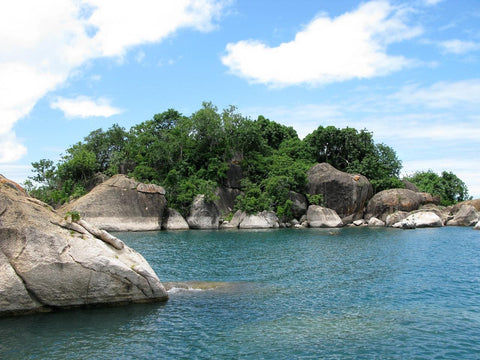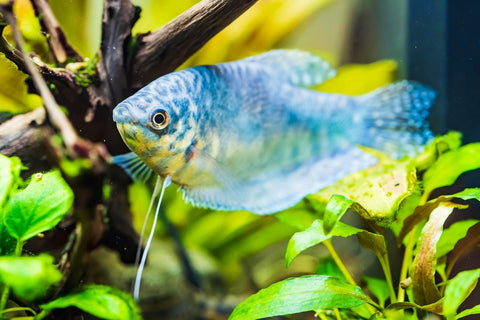Lake Malawi - a fascinating natural beauty
Lake Malawi is one of the largest and most beautiful lakes in Africa. It is located in the southern part of the African continent and stretches across the countries of Malawi, Mozambique and Tanzania. With an area of around 29,600 square kilometers, it is the ninth largest lake in the world. Lake Malawi is not only a paradise for nature lovers, but also a unique ecosystem with an impressive diversity of species.
Geography and formation
Lake Malawi was formed around two million years ago by tectonic activity. The deepest parts of the lake are more than 700 meters below sea level. Surrounded by a breathtaking landscape and framed by mountains, Lake Malawi is a real feast for the eyes.
Unique biodiversity
Lake Malawi is home to one of the highest concentrations of endemic fish species in the world. The lake is home to over 1000 different fish species, of which around 90 % only occur here. This makes Lake Malawi a true paradise for aquarium enthusiasts. The variety of colors and shapes of the fish is absolutely fascinating.
The best-known fish species in Lake Malawi are the colorful cichlids. They are not only known for their bright colors, but also for their interesting behavior. The cichlids have adapted to the different ecological niches of the lake and form an amazing variety of adaptations.
In addition to the fascinating fish, Lake Malawi is also home to a diverse flora and fauna. The shores of the lake are rich in vegetation with palm trees, mangroves and other plant species. Numerous bird species and other animals such as crocodiles and hippos can also be found around the lake. Lake Malawi is a true paradise for animal and nature lovers.
Ecological significance and challenges
Lake Malawi is of immense ecological importance as it affects the lives of millions of people in the surrounding regions. The lake serves as an important source of drinking water, food and economic resources. Fishing is one of the most important sources of income for local communities.
However, Lake Malawi also faces numerous challenges. Overfishing is a major problem, as many fish species are endangered. The increasing demand for fish is leading to overexploitation of the lake. The lake also suffers from environmental pollution, particularly from sewage and the use of fertilizers in agriculture. Climate change is another threat, as it leads to changes in water quality and habitat.
Sustainable protection and conservation
In order to protect the unique biodiversity and beauty of Lake Malawi, comprehensive measures are needed to preserve the ecosystem. It is important to control overfishing and promote sustainable fishing practices. Improved wastewater treatment and the protection of riparian vegetation are also of great importance.
Sustainable tourism plays an important role in the conservation of Lake Malawi. Visitors can explore the lake on boat tours, go snorkeling and diving or visit the surrounding national parks. Tourism can generate revenue that helps to fund conservation projects and support local communities.
Lake Malawi - A place of wonder and inspiration
Lake Malawi is not only an impressive natural phenomenon, but also a place of wonder and inspiration. The beauty of its landscape, the diversity of its flora and fauna and its ecological importance make it a jewel of Africa. Lake Malawi is a place where you can experience nature in its purest form.
It is our responsibility to protect Lake Malawi and its inhabitants and to manage this valuable resource sustainably. This is the only way we can ensure that future generations can experience the beauty and diversity of Lake Malawi. Lake Malawi is a symbol of the beauty and vulnerability of nature and reminds us how important it is to protect it.




Comments (0)
There are no comments for this article. Be the first one to leave a message!